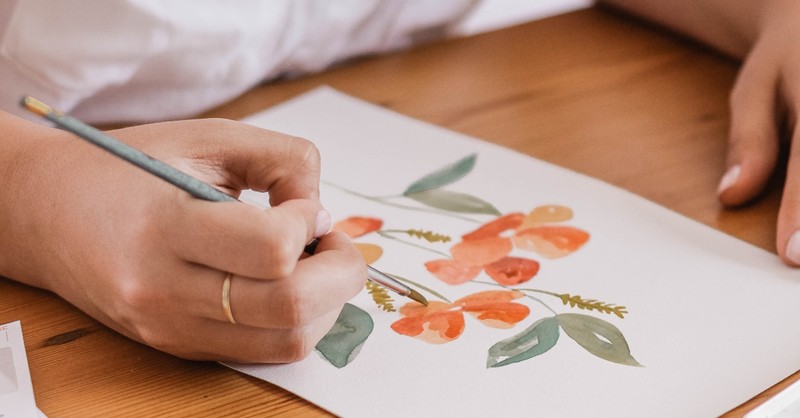
During my daughter’s late teen years, she experienced significant depression that left me frightened and confused. I wanted to help her, but I didn’t know how. While I understood what Scripture said about worry, joy, and peace, I recognized this wasn’t something I could fix by spouting off verses or tossing peppy affirmations her way. But neither would I leave her to navigate her difficult time alone. And so, I educated myself on how to love her well through her pain.
While every child and situation is unique, here are 6 ways you can help your daughter through mental health challenges.
1. Recognize you and your daughter aren’t alone.
Although we’re getting much better at this, many of us hide our struggles beneath overly cheerful smiles and “appropriate Sunday morning” phrases. As a result, we might believe that everyone else remains problem-free and has life all figured out.
However, this is far from true. According to the Anxiety and Depression Association of America, 18% of Americans 18 and older, which amounts to roughly 40 million people, suffer from depression and anxiety. Experts are seeing dramatic increases in mental health issues among today’s youth with one third of teenagers battling some form of anxiety and 20% fighting depression.
Recognizing these facts can help remove the shame and self-condemnation that might hinder us from seeking help. And our girls do need help.
Photo Credit: © Getty Images/Rawpixel

2. Know this isn’t always a spiritual issue.
Humans tend to compartmentalize our thinking, which can result in narrowly attributing one cause to complex issues. For example, those who have seen positive results from a particular diet might believe pineapple or coconut oil can solve any ailment, mental or physical. Or we may assume, say, the iron pill that effectively conquered our anemia-related fatigue will have the same effect on everyone with similar challenges.
We can easily demonstrate this same proclivity in the church when we assign a spiritual cause to every mental health problem. But we are physical, emotional, and spiritual beings impacted by physical, emotional, and spiritual influences. For some, such as those who are consistently living outside of Christ’s will for them, their depression likely does come primarily from a spiritual cause. Others might be struggling with past hurts that they haven’t processed and healed from. Still others might be dealing with a neural-chemical imbalance.
When we don’t recognize all the factors involved with mental health, we risk deeply hurting our daughters and, potentially, creating barriers between them and God.
3. Be alert to harmful messages she may have received.
While my husband and I have done our best to speak of mental health issues in a well-informed manner, our daughter still received confusing and false messages growing up through various sermons and statements made by others in her faith community. The youth especially, likely mirroring attitudes displayed by their parents, created an environment that not only hindered authentic vulnerability but also encouraged shame.
Luckily, she shared some of their damaging statements and conversations with me, and we were able to talk through them. But these experiences did make it harder for her to seek help. They also increased her sense of isolation.
Photo Credit: © Getty Images/kieferpix

4. Pray.
This might sound too elementary or even expected to mention, but as a mom, I often need the reminder to seek God first, and not with a quick and repetitive, “Lord, help her cry.” But I need to diligently and actively pursue more than His aid. I need His guidance in order to truly love my daughter well.
Sometimes God encouraged me to speak, whether that meant offering truths her soul could hold tight to or using questions to gently draw her out. He also encouraged me to remain silent—in order to simply listen, an action that can initiate healing in itself, or to allow Him to address the situation.
One weekend during our daughter’s darkest period, she returned home from an eight-month co-op for a visit. My husband and I could tell she was struggling. We discussed the situation and felt certain we needed to say something. Our logic seemed so, well, logical, from our perspective. But knowing how limited our wisdom can be, we prayed for God’s insight.
Then we waited for His reply. He never answered, at least, not directly. Instead, He spoke the words we were wanting to say—through the pastor. In other words, in a nonthreatening way my daughter was more apt to receive. Through this, I was reminded that God truly does know what my daughter needs, precisely when she needs it. He doesn’t need me to fix her problems or heal her hurts. He simply needs me to remain present, engaged, and surrendered to Him.
Photo Credit: © Getty Images/Predrag Images

5. Create safe places for conversation.
In a perfect world, our teens would come to us, openly and without hesitation, with any problem, fear, and concern. I’ve discovered, however, if I want my daughter to talk to me, I need to create an environment that encourages her to do so. If I’m always in a rush, fall immediately into “teaching mode” or respond to her thoughts and feelings with judgment, she’ll begin distancing herself from me. Our conversations will remain surface-level, with her progressively hiding who she really is or how she truly feels.
The opposite often occurs as well. When I prioritized unhurried conversations and focused primarily on loving and understanding my daughter, she started to open up. She often began timidly, tossing out a seemingly casual sentence, as if gauging my reaction. Reading her tone and body language, I would often nod to let her know I’d heard her, and then I would wait. And inevitably, that was when she revealed her heart — without hiding, pretending, or self-protecting.
We all play that dance, don’t we? Most of us are much more guarded and cautious around those who are critical, dismissive, or distracted. Obviously, that is not how we want our girls to act with us. But trust, the type that leads to honest discussions, doesn’t come through bloodlines. It must be earned. If we want our daughters to feel safe sharing their greatest struggles, we’ll first need to demonstrate that we’re a safe person with whom to do so.
Photo Credit: © Kikovic

6. Find an area they can excel in.
I first noticed our daughter’s depression the summer between her freshman and sophomore year in high school. My once active and giggly girl who’d spent her childhood bouncing from one new activity to the next had suddenly lost interest in everything. All she wanted to do, it seemed, was sit on the couch and play video games. This concerned her as much as it did us.
She would, however, pick up a colored pen and doodle every once in a while. Believing if she felt successful in one area, her confidence would bleed into other areas, my husband and I began investing in her creativity. We purchased numerous art supplies, engaged her in conversation whenever she painted or drew, then prominently displayed all her projects.
This helped in a few ways. First, it gave her something she could feel proud of, which helped counter some of her negative thinking. Second, it provided a positive, casual way for us to connect. And third, it helped her practice a powerful self-care tool, one she still practices now that she’s an adult.
7. Stay with them.
Sometimes our kids’ sorrow and anxiety is situational. Maybe they’re grieving the loss of a friend or navigating a challenging life transition. Still others will battle mental health challenges for most if not all of their lives. They might not be pleasant or fun to be around. They might even push against our efforts to help, telling us to leave them alone.
Don’t listen. They need you, perhaps now more than ever.
During that rough summer I referenced earlier, my daughter wanted to stay in her room most of the time. But my husband and I knew we needed to find a way to get her out at least once a day. As he was at work most of the time, that job usually fell on me. And my daughter was not a fan. In fact, there were times when I felt as if she hated me. But she didn’t. That was simply her depression talking, and years later, she thanked me for not giving up on her.
Photo Credit: © Unsplash

8. Get help.
I often joke that our family keeps our counselors on speed dial. While that might be a slight exaggeration, we have learned, through experience, how valuable a trained and educated mental health expert can be. Consider this. When a kitchen pipe breaks, we call a plumber. When our lawn dies, we contacted a landscaper. When our roof leaks, we hire a roofer. Most of us would never attempt to tackle such repairs alone. Why should our child’s mental health, or ours for that matter, be any different? Surely in such a crucial area, we’d want expert advice.
Our willingness to get help does more than address our immediate concerns, as important as those are. It also provides a powerful example to our children regarding how to care for oneself when life feels overwhelming. We saw just how important this was during our daughter’s eight-month co-op when her depression intensified. Only this time, living five states away, there wasn’t much I could do to help. I couldn’t distract her with jokes, force her out of the house, or engage her in an art project.
You know the phrase about how distance makes the heart grow fonder? It makes worry grow stronger as well. My concern greatly decreased, however, when she called one evening to let me know she’d contacted a counselor.
As much as she hated us dragging her to counseling when she was younger, doing so had served a purpose. It helped us all approach her anxiety and depression wisely, created a safe space for unguarded conversations, and demonstrated the importance of seeking help.
Our girls need to know doing so isn’t a sign of weakness but rather of courage and strength. God wants each of us to experience increased emotional and spiritual freedom and has provided access to numerous biblically accurate and Christ-centered resources. He’ll guide us, as parents, to seek those tools and avenues our daughters need to thrive. May we have the courage to pursue His wisdom and truth in order to love our hurting and anxious daughters well.
Photo Credit: © Getty Images/lorenzoantonucci
Originally published Tuesday, 11 May 2021.









